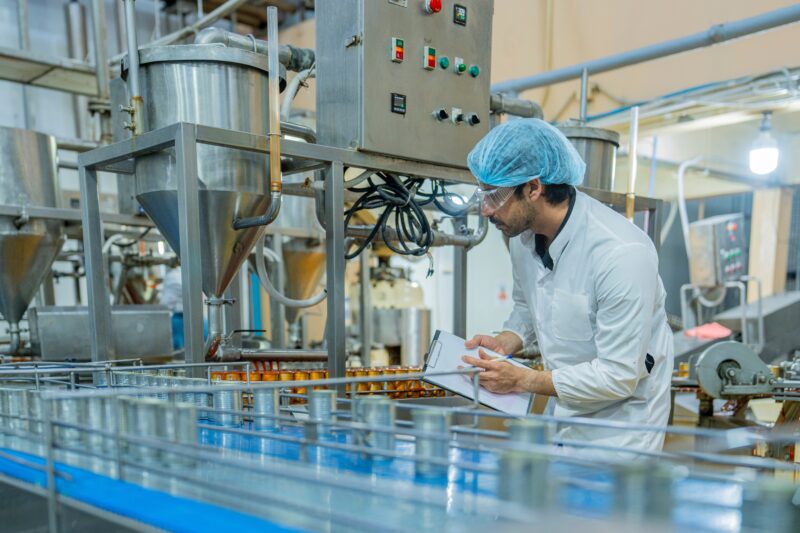In the past, advancing in a hospitality or food-related career meant taking an entry-level position and working your way up the ladder. Fast forward, the world is changing, and anyone, from a small restaurant employee to a senior food quality control officer, can gain a career edge and boost their overall human capital value by obtaining the proper food industry certification. Here, we explore several popular and essential food safety certifications that professionals in this industry need.
Seven Important Food Industry Certifications You Should Consider
Whether you need to advance your career or simply are looking to meet employer regulations, these food safety certifications will help you gain a competitive advantage in the job market and increase your overall employee value:
1. FSPCA Preventive Controls
The FSPCA Preventive Controls, developed by the Food Safety Preventive Controls Alliance, is the only standardized curriculum for human food and animal food that has been approved by the FDA.
Completing the Preventive Controls course is meant to help aspiring preventive controls qualified professionals gain the skills they need to build and apply risk-based preventive measures during the processing, packing, and holding processes in food manufacturing industries, thereby helping to prevent contamination.
Preventive Controls is a 20-hour course, offered both virtually and in-person by FSNS and our regulatory arm, EAS Consulting Group. The course, taught by FSPCA-trained food safety professionals, is ideal for those with experience in the following areas:
- Food processing and packaging
- Food-handling facilities
- Food safety testing and auditing
2. Microbiology and Food Safety 101 Course
The Microbiology and Food Safety 101 Course is a vital food safety course for any food professional seeking to improve the safety and shelf-life of their food products through microorganism control.
The course explores microbiology in detail, covering different microorganisms, their physiology, and how they affect food safety.
It also covers critical safety practices for microbial control, allowing participants to gain the necessary skills to prevent microbial contamination during food-manufacturing processes for safe, nutritious food products.
The Microbiology and Food Safety 101 course often takes a day and covers the following topics:
- The basics of food microbiology
- Factors that promote microbial growth and survival in food-processing plants
- Microbial control strategies in food-processing factories
- Shelf-life testing
- Foodborne pathogens
The course is available either in-person or online, and the registration typically includes the course materials, certificate of completion, and lunch (if attending in-person).
3. BRCGS Food – Issue 9 Sites Training and Internal Auditing
The Global Standard for Food Safety was published by the BRC in 1998. Initially developed to facilitate compliance with UK and EU safety laws, the standard became a globally recognized scale for best practices in food safety and quality.
The standard is now on its ninth issue, and completing the BRCGS Food-Issue 9 Sites Training and Internal Auditing course helps participants understand its fundamentals and how they can comply. The course takes two days and offers insight into what participants should expect during the certification processes and the prerequisites before, during, and after an audit. It has seven sections and includes the food safety plan – HACCP, site standards, product control, and process control.
Similar to most food industry certification courses, it’s also available both online and through in-person classes. It’s ideal for food manufacturers, retailers, importers, and even ingredient vendors across the UK and the U.S.
4. Sanitation: Management of Cleaning & Disinfecting in Food Environments
Cleaning is critical to preventing foodborne illnesses and ensuring food quality in processing plants. Cleaning removes dirt and grease while disinfecting using food-friendly sanitizers such as quaternary and chlorine solutions to kill bacteria and other food-contaminating pathogens.
That said, this food safety course covers all the CDC, FDA, and USDA food and cleaning requirements and recommendations for food safety. It also offers essential tips on how food experts can prevent biofilm formation during food manufacturing and handling processes and how to manage food sanitation processes.
5. Preventive Maintenance
A detailed, well-implemented preventive maintenance program is critical to the success of every food processing professional.
This preventive maintenance food certification covers the microbial, chemical, and physical risks typical of process maintenance shops and BRC, SQF, USDA, and FDA regulatory requirements. The course also integrates food safety and essential maintenance practices for food processors, quality assurance, and maintenance managers. It covers an array of topics, including but not limited to:
- Procedure writing
- Lubricant management
- Planned and emergency repairs
- Essential components of internal auditing
6. FSSC 22000
FSSC 22000 is a fully recognized food safety standard by the Global Food Safety Initiative (GFSI). The standard is based on ISO 22000, which covers all food supply chain processes that deal with consumable products directly or indirectly.
The standard also integrates PAS 220:2008 to supplement some of the ISO22000 programs, making it more compatible with GFSI requirements. Taking food safety training courses helps foodservice professionals learn and meet FSSC 22000 scheme requirements. Participants must complete either HACCP or PCQI courses to register for this course.
7. HACCP Training Course
The HACCP food certification is a two-day training course meant to equip food processing and manufacturing professionals with the development and management of HACCP systems. It’s ideal for corporate executives, plant management teams, and other individuals whose line of work links to HACCP plans.
Other food qualification and food safety certification courses that food and beverage industry professionals should partake in include:
- FSPCA Intentional Adulteration
- Microbiology and food safety 202 course
- SQF/Internal Auditing Training Course
- Advanced HACCP/Preventive Controls
- FSPCA Foreign Supplier Verification Program
- Low-Acid and Acidified Foods through the Better Process Control School
- Labeling and claims for both FDA and USDA-regulated products
- Custom courses available
Advance Your Career with the Right Food Safety Certification Courses Today
Whether you are looking to build your food industry service portfolio, meet particular job requirements, or increase your marketability, taking any of the food certification courses above will improve your skillset and value to current and potential employers.
Getting these certifications doesn’t have to cost an arm and a leg. FSNS and our regulatory arm, EAS Consulting Group, offer cost-friendly, customized food safety certification courses for food processing and manufacturing professionals throughout North America.



